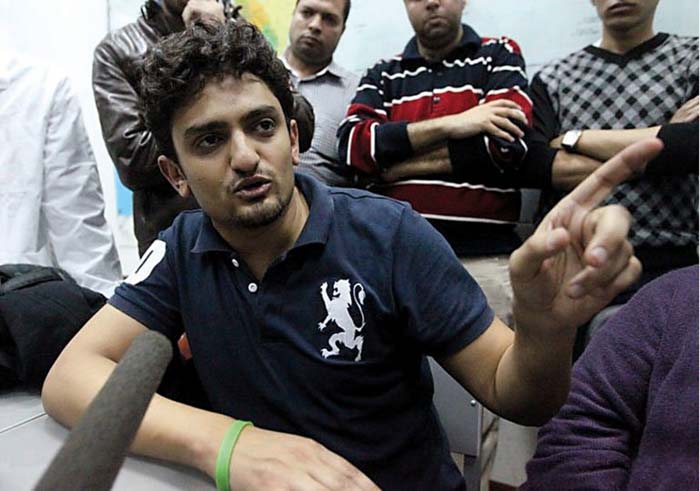E-Revolutionary Sparks Change
Wael Ghonim (MBA '08) helped galvanize the masses from the virtual to the real world 
It was only a few months ago that
Wael Ghonim (MBA '08) led a
normal life working in the Gulf as
a marketing executive for technology
giant, Google. As the uprising changed
the lives of many Egyptians, Ghonim
was no exception. His name resonated
in all corners of the globe as a leading
figure behind the change in Egypt.
Born in 1980 to a middle-class
family, Ghonim earned his
undergraduate degree in computer
science from Cairo University. He then
moved on to pursue an MBA from
AUC. Ghonim worked for various local
Web projects before being appointed as
Google Egypt's regional product and
marketing manager for the Middle East
and North Africa. Less than two years
later, he was promoted to head of
marketing at Google's United Arab
Emirates office in Dubai Internet City.
Ghonim, who belongs to a
generation often accused of passivity
and political apathy, proved that the
world can be changed through the
click of a button. Thanks to social
media and networking Web sites such
as Facebook and Twitter, Ghonim's
ideas and dreams for change were
well-received and gained momentum
in the virtual world, and eventually
transpired into actions in the real world.
Ghonim's association with the
Egyptian Revolution began with the
creation of a Facebook group called
Kolena Khaled Said (We Are All Khaled
Said). The page condemned acts of
police brutality against Khaled Said, a
28-year-old Alexandrian who was
tortured and beaten to death by two
police officers. The page solicited
thousands of members and became an
outlet for the Internet generation to
speak out on issues of corruption,
brutality, oppression and, eventually,
their dreams and visions for a better
tomorrow in Egypt.
On January 25, hundreds of
thousands of protestors gathered in
response to group efforts in promoting
nationwide anti-regime demonstrations.
Ghonim reasoned that "breaking the
psychological barrier of fear is the
tipping point of any revolution in any
police-driven regime led by a dictator."
On January 27, Ghonim disappeared
during the political unrest in Egypt.
Days later, it was revealed that he was
being incarcerated by members of the
security force. As the story gained
international interest and with
increasing pressure from the media,
Ghonim was finally released 12 days
after. Upon his release, he had a
moving interview on Al Ashera
Masa'an (10 pm), hosted by Mona El
Shazly '96 on DreamTV. The episode
was thought by many to have been a
major driving force behind increasing
numbers of protestors who had taken
to the streets. Nevertheless, Ghonim
insists that the success of the revolution
in overthrowing the regime cannot be
attributed to a single person. "The real
hero is the young Egyptians in Tahrir
Square and the rest of Egypt," he
noted. "No one was a hero because
everyone was a hero."
For Ghonim, the revolution is far
from over. "This revolution is not over
until democracy is enforced and until
unemployment and poverty rates reach
the same levels of developed
countries," he said. "[Egypt] has what
it takes to become the second Silicon
Valley: talents in technology, infinite
passion and, soon, real democracy. …
I believe in our nation. Egyptians will
never trade away their freedom, and
they will not accept cosmetic changes.
I'm optimistic."
By Ghaydaa Fahim
Quotes in the article are based on
Ghonim's tweets through Twitter. |
